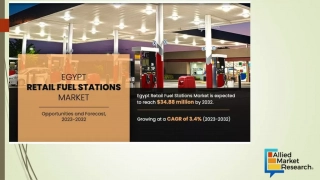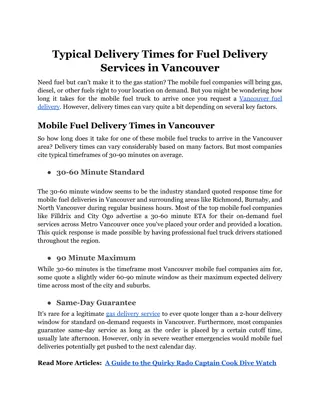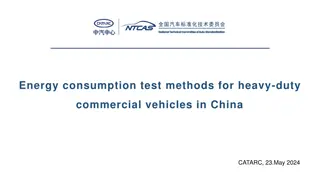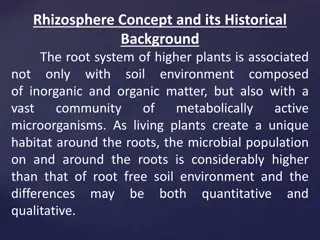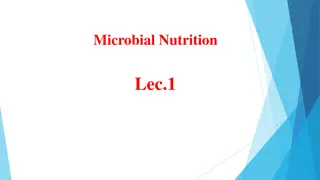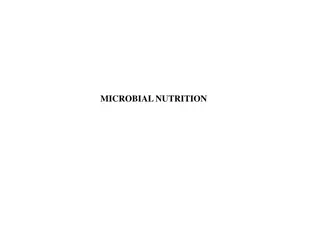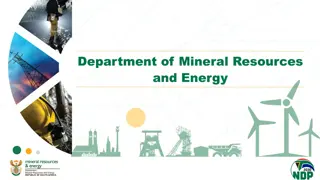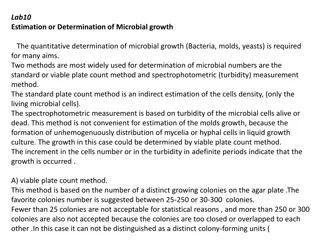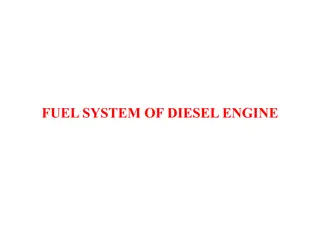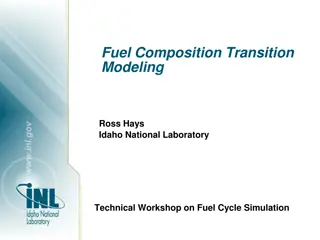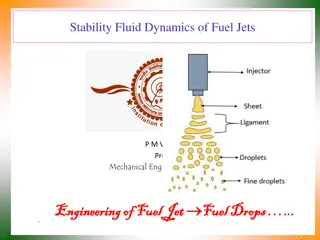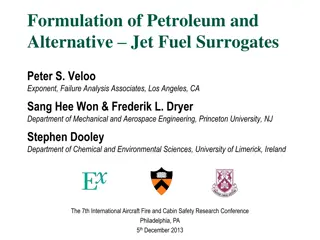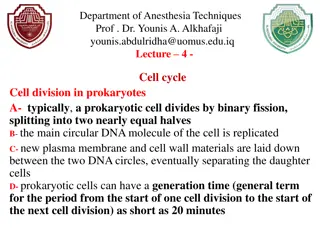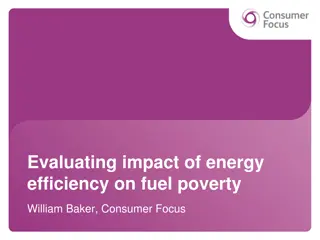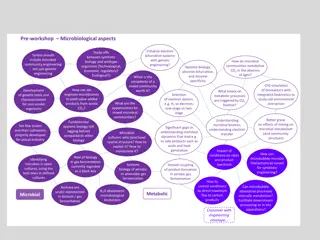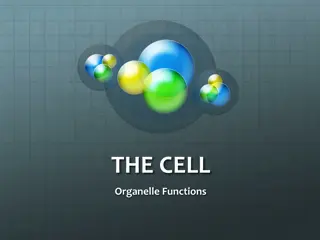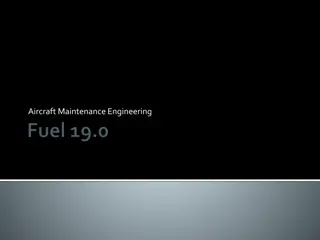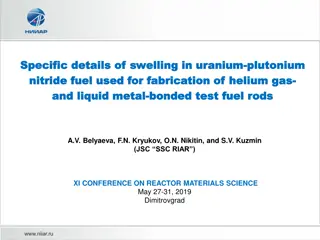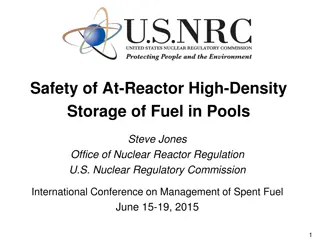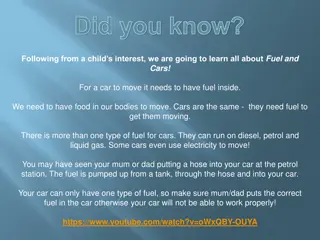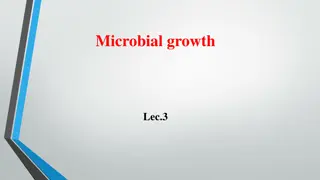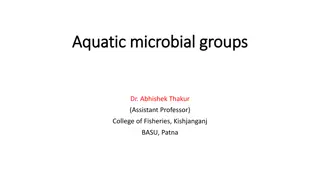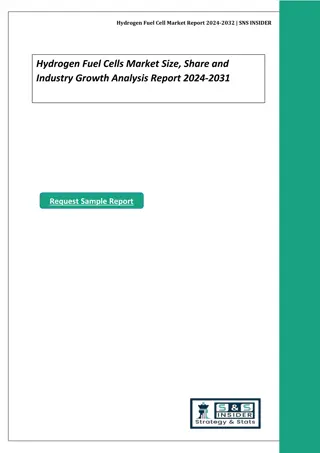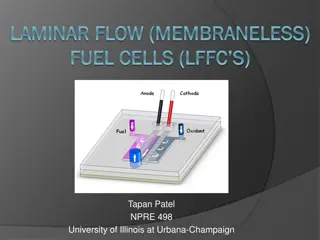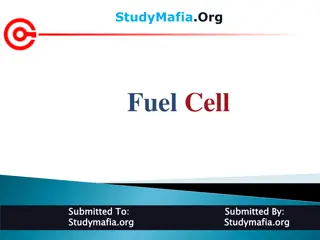Bunker Fuel Market
Bunker fuel is a fuel oil used in marine vessels. It is poured into the ship bunkers to keep the engines running. Ships use three types of marine fuels, which include high sulfur fuel oil, low sulfur fuel oil, and diesel oil. Presently, growth in awareness toward reducing environmental pollution and
2 views • 6 slides
Bunker Fuel Market
Bunker fuel is a fuel oil used in marine vessels. It is poured into the ship bunkers to keep the engines running. Ships use three types of marine fuels, which include high sulfur fuel oil, low sulfur fuel oil, and diesel oil. Presently, growth in awareness toward reducing environmental pollution and
1 views • 6 slides
Bunker Fuel Market
Bunker fuel is a fuel oil used in marine vessels. It is poured into the ship bunkers to keep the engines running. Ships use three types of marine fuels, which include high sulfur fuel oil, low sulfur fuel oil, and diesel oil. Presently, growth in awareness toward reducing environmental pollution and
6 views • 6 slides
Egypt Retail Fuel Stations Market
A fuel station, also known as a petrol station, gas station, service station, or filling station, is a retail outlet that sells motor vehicle fuel to vehicle owners. Fuel stations provide various fuels including diesel, petrol, gasoline, kerosene, and ethanol. The main components of a fuel station i
5 views • 6 slides
Vi-CELL.BLU - Advanced Cell Counting Instrument
Vi-CELL.BLU is a cutting-edge cell counting instrument that offers faster analysis, increased resolution, and improved optical sensor technology for enhanced cell concentration and viability assessments. The device features a user-friendly interface, Trypan blue method for live cell detection, and a
1 views • 19 slides
Typical Delivery Times for Fuel Delivery Services in Vancouver
Need fuel but can't make it to the gas station? The mobile fuel companies will bring gas,\ndiesel, or other fuels right to your location on demand. But you might be wondering how\nlong it takes for the mobile fuel truck to arrive once you request a Vancouver fuel\ndelivery. However, delivery times c
9 views • 4 slides
green hydrogen market
green hydrogen is used as fuel to provide a sustainable mobility alternative. Fuel cells make vehicles more efficient and quieter; using green hydrogen allows vehicles to travel longer distances with less refueling. The increase in demand for green hydrogen is also due to growing government initiati
1 views • 3 slides
Energy Consumption Test Methods for Heavy-Duty Commercial Vehicles in China
China has released energy consumption testing methods for various types of fuel vehicles, including traditional fuel vehicles, hybrid electric vehicles, battery electric vehicles, fuel cell vehicles, natural gas vehicles, and methanol vehicles. The standards cover test methods for fuel consumption a
4 views • 15 slides
Understanding the Rhizosphere: A Historical and Microbial Perspective
The rhizosphere, the region surrounding plant roots, harbors a diverse community of microorganisms influenced by plant roots. Historical background and microbial interactions in the rhizosphere are explored, highlighting the favorable habitat for microbial proliferation and metabolism. Various techn
1 views • 49 slides
Understanding Microbial Nutrition and Bacterial Physiology
Microbial nutrition involves essential elements required for microbial growth and energy production. Bacterial physiology delves into the structures and functions that enable bacteria to thrive, from cell wall composition to enzyme activities. Major elements like C, O, H, N, S, and P are crucial for
2 views • 20 slides
Understanding Microbial Nutrition and Growth Factors
Microbes require carbon for metabolic activities, with organisms categorized as heterotrophs or autotrophs based on their carbon source. In addition to carbon, macronutrients like nitrogen, phosphorous, sulfur, potassium, and magnesium are crucial for cell function. Growth factors such as amino acid
0 views • 15 slides
Preliminary Analysis of Fuel Dependence and E-Mobility in the Pacific
This study by PhD Candidate Edoardo Santagata at UNSW delves into the fuel dependence and potential for e-mobility in the Pacific region. It includes data collection on energy consumption, fuel demand, vehicle registrations, and scenarios for electric vehicle integration. Preliminary findings highli
1 views • 17 slides
Fuel Pricing Mechanisms and Regulatory Framework Presentation
This presentation to the Portfolio Committee on Mineral Resources and Energy delves into the Basic Fuel Price (BFP) for liquid fuels, covering global fuel pricing forms, policy positions, key pricing mechanisms, regulatory mandates, and the intricate structure behind fuel prices. It explains how the
2 views • 28 slides
Methods for Determination of Microbial Growth
Quantitative determination of microbial growth is crucial for various purposes, with two commonly used methods being the standard plate count and spectrophotometric measurement. The standard plate count method estimates living microbial cell density, while spectrophotometric measurement relies on tu
2 views • 6 slides
Mechanisms of Nutrient Uptake by Microbial Cells
Nutrient uptake by microbial cells involves various transport mechanisms such as passive diffusion, facilitated diffusion, active transport, and group translocation. These mechanisms ensure the specific acquisition of required nutrients by the cell through the selectively permeable plasma membrane.
3 views • 15 slides
Understanding the Fuel System of Diesel Engines
During operation, a diesel engine's fuel system plays a crucial role in delivering clean fuel to the combustion chamber. The system comprises components like fuel filter, fuel lift pump, fuel injection pump, atomizers, and high-pressure pipes. Proper maintenance is essential to ensure efficient oper
5 views • 12 slides
Fuel Pricing Mechanisms and Regulation Overview
Explore the various fuel pricing options and mechanisms available, including a discussion on alternatives for fuel pricing regulation. The objectives of fuel price regulation, classifications of fuel pricing in the Pacific Islands, and options such as regulating fuel price and tendering national fue
1 views • 11 slides
Fuel Composition Transition Modeling in Two-Stage Recycling Reactors
Modeling the transition of fuel composition in a two-stage recycling reactor scenario poses a unique challenge that previous versions of VISION were unable to address. By tracking fuel mass and isotopics through various stages of the fuel cycle, VISION now enables the modeling of reactors with recip
0 views • 15 slides
Insights into Fuel Jet Stability and Dynamics
Explore the complex realm of fuel jet stability and dynamics, including topics such as Kelvin-Helmholtz instability, liquid breakup postulations, geometric features of fuel sprays, penetration of spray into air, and more. Gain a deeper understanding of fuel drop formation, spray parameters, structur
1 views • 18 slides
Advances in Aviation Fuel Surrogates and Computational Modeling
This study explores the formulation of petroleum and alternative jet fuel surrogates, coupling chemical kinetics with computational fluid mechanics for engine design, and the variability of aviation fuels. It delves into the concept of surrogate fuel models, previous research on jet fuel surrogates,
0 views • 20 slides
Overview of Cell Division in Prokaryotes and Eukaryotic Cells
Cell division plays a crucial role in the growth and reproduction of all organisms. In prokaryotic cells, binary fission is the primary mode of division, while eukaryotic cells undergo a more complex process involving cell growth, DNA replication, chromosome distribution, and cytokinesis. The cell c
0 views • 10 slides
Understanding Energy Poverty and Its Impact on Fuel Poverty in Europe
Evaluating the impact of energy efficiency on fuel poverty, this study examines the emergence of energy poverty in the EU, factors driving fuel poverty across Europe, and UK's definition of fuel poverty. It discusses various policies and strategies implemented to address fuel poverty, emphasizing th
0 views • 16 slides
Fuel Cycle Analysis Toolbox: Enhancing Understanding and Optimization
This presentation focuses on the analyses and evaluations essential for assessing the potential of a fuel cycle, emphasizing different time scales, system sizes, objectives, and audiences. It discusses the need for coupled analyses, various tools required, and opportunities for improvement through i
1 views • 11 slides
Advancing Microbiological Systems Through Genetic Engineering and Microbial Community Engineering
Exploring the intersection of genetic engineering and microbial community engineering to enhance electron bifurcation systems. Addressing trade-offs between synthetic biology and wildtype organisms, incorporating microbial community engineering in Synbio, and investigating CO2 metabolism in the abse
0 views • 8 slides
Role of Cell Cycle in Nanoparticle Uptake and Dilution in Cell Population
The cell cycle plays a crucial role in the cellular uptake and dilution of nanoparticles within a cell population. This process involves different phases such as G1, S, G2, and M, each with specific functions related to cell growth, DNA synthesis, protein synthesis, and cell division. Understanding
0 views • 20 slides
Understanding Cell Structure and Function
Explore the intricate world of cell biology through this comprehensive guide covering the definition of a cell, the characteristics of animal cells, the role of the nucleus, ribosomes, cell structure, organelles, cell membrane, and cell wall. Discover the fascinating details of eukaryotic cells and
0 views • 61 slides
Understanding the Functions of Cell Organelles
Explore the vital functions of different cell organelles such as the cell membrane, nucleus, endoplasmic reticulum, lysosomes, Golgi apparatus, mitochondria, cytoplasm, ribosomes, vacuole, cell wall, chloroplasts, and chlorophyll in a cell. Learn how each organelle plays a unique role in maintaining
0 views • 38 slides
Comprehensive Overview of Aircraft Maintenance Engineering and Fuel Systems
Explore the intricate world of aircraft maintenance engineering encompassing fuel types, storage, lines, valves, filters, tanks, and more. Delve into AVGAS and JET fuels, their properties, and applications in operations. Gain insights into fuel tanks construction, fuel lines management, and the impo
1 views • 25 slides
Investigation of Swelling in Uranium-Plutonium Nitride Fuel for Helium Gas Fabrication and Liquid Metal-Bonded Test Fuel Rods
This study examines the specific details of swelling in uranium-plutonium nitride fuel used for fabrication of helium gas and liquid metal-bonded test fuel rods. Key irradiation parameters, examination techniques, and the structural and phase state of SNUP fuel after low-temperature irradiation are
0 views • 18 slides
Enhancing Safety and Management of Spent Fuel in High-Density Storage
This informative presentation delves into the safety measures and regulatory changes surrounding the storage of spent fuel in high-density pools. Topics covered include the design of spent fuel pools, historical regulatory activities, past studies on fuel uncovery risks, and advancements in analytic
0 views • 17 slides
Understanding Animal Tissue Culture and Cell Line Production
Animal tissue culture involves growing tissues separate from the animal in a laboratory setting. To achieve exponential cell growth, cells are converted into immortal cell lines. The production of a cell line involves steps like breaking cell adhesion, incubation, and transferring cells to fresh med
0 views • 22 slides
Exploring Fuel and Cars: A Child's Guide
Cars need fuel to move, just like we need food to function. There are different types of fuels for cars, including diesel, petrol, liquid gas, and electricity. Learn how oil is formed, extracted from the earth, and processed into fuel. Explore the journey of fuel from oil rigs to your car's tank. Di
0 views • 6 slides
Understanding Microbial Growth: Phases and Dynamics
Microbial growth is defined as an increase in cellular constituents leading to a rise in microorganism size or population. The growth of bacterial cells is characterized by distinct phases such as lag phase and exponential phase. During the lag phase, cells are synthesizing new components before div
0 views • 21 slides
Understanding Aquatic Microbial Groups and Their Environments
Explore the diverse world of aquatic microbial groups, their distribution in different water bodies, and their roles in ecosystems. Learn about the factors influencing microbial growth in water, the impact of eutrophication, bioremediation strategies, and the unique microbial communities found in es
0 views • 18 slides
Hydrogen Fuel Cell Market
\nHydrogen Fuel Cells Market Size, Share & Segmentation By Product Type (Liquid-Cooled Type and Air-Cooled Type), By Technology Type (Polymer Exchange Membrane Fuel Cells (PEMFC), Phosphoric Acid Fuel Cells (PAFC), Solid Oxide Fuel Cells (SOFC), Dire
1 views • 8 slides
Advancements in Laminar Flow Fuel Cells for Efficient Energy Generation
Explore the innovative Laminar Flow Fuel Cell technology, offering efficient self-pumping applications and addressing limitations of traditional fuel cells. Learn about the benefits, fuel options, and ongoing research to enhance energy generation using this cutting-edge technology.
0 views • 13 slides
Advancements in Fuel Cell Technology for Sustainable Energy Solutions
Hydrogen is gaining traction in Finland due to its potential for green energy production, with fuel cells playing a key role in harnessing this resource. Various types of fuel cell technologies are being explored, offering high efficiency and versatility for applications in industries, transportatio
0 views • 10 slides
Understanding Fuel Cells: Definition, Working, and Applications
Fuel cells are electrochemical cells that generate electricity through reactions between fuel and an oxidizing agent like oxygen. They offer high efficiency compared to traditional power plants. The working of fuel cells involves hydrogen and oxygen reacting to produce electricity. NASA has utilized
0 views • 20 slides
Microbial-H2 Fuel Cell: A Sustainable Solution for Water and Electricity Challenges
This project focuses on developing a generator that utilizes microbial and hydrogen fuel cells to produce water and electricity as by-products. The aim is to address water scarcity and energy challenges faced by communities in South Africa. By combining innovative technologies like air-to-water syst
0 views • 15 slides
Washington State Ferries Fuel Efficiency Initiatives
Washington State Ferries (WSF) is implementing various fuel efficiency measures to reduce fuel consumption, including propeller redesign, hull coatings, and operational changes. The importance of fuel efficiency is highlighted as fuel represents a significant portion of the operating budget. WSF has
0 views • 12 slides



